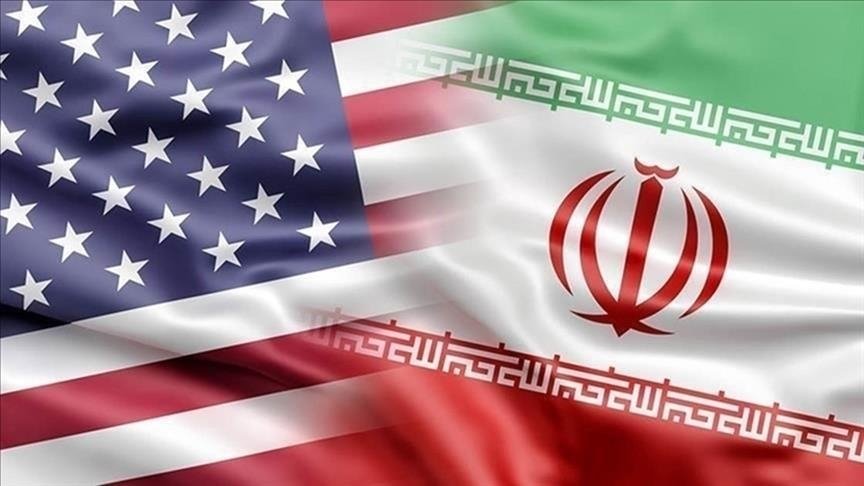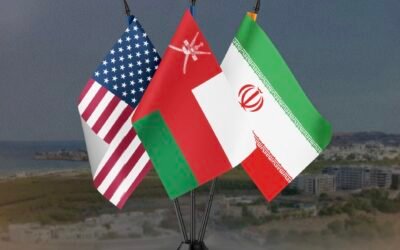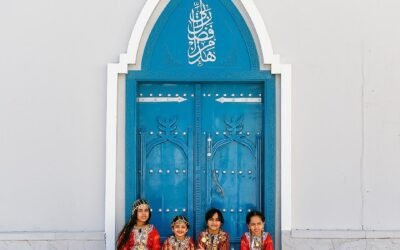🕊️ Muscat Diplomacy: Oman Hosts High-Stakes US-Iran Indirect Talks Amid Regional Tensions
Muscat – April 12, 2025
In a significant diplomatic development, the Sultanate of Oman is once again playing its historic role as a neutral bridge-builder by hosting indirect talks between the United States and the Islamic Republic of Iran. The negotiations, taking place in Muscat, signal a tentative yet important step toward easing escalating regional tensions and reviving dialogue between two adversaries at a critical geopolitical juncture (Al Jazeera, April 2025).
A Legacy of Quiet Diplomacy
Oman has long been recognized for its discreet and effective diplomatic outreach. From backchannel communications that led to the 2015 Iran nuclear deal (JCPOA) to its role in mediating regional disputes, Muscat has earned a reputation as a trusted and impartial host (The Washington Post, July 2015). This latest round of indirect talks—held under the mediation of Omani Foreign Minister Sayyid Badr al-Busaidi—reaffirms Oman’s commitment to regional stability and peaceful resolution of conflicts (Middle East Eye, April 2025).
The Format of the Talks
The discussions between Washington and Tehran are being held indirectly, a familiar method in diplomacy when direct dialogue is too politically sensitive. Both parties—U.S. envoy Steve Witkoff and Iranian Foreign Minister Abbas Araghchi—remain in separate rooms, with Omani officials shuttling messages between them (Reuters, April 2025).
This method underscores the cautious tone of the engagement, with both sides testing the waters after years of hostility and mutual mistrust. It mirrors the format used during the early stages of the 2013–2015 nuclear negotiations (The Guardian, March 2015).
The Stakes: Nuclear Tensions and Regional Flashpoints
At the heart of the dialogue is Iran’s rapidly advancing nuclear program, which has alarmed Western powers and regional players alike (IAEA Report, March 2025). The United States is seeking assurances that Iran will not develop nuclear weapons, while Iran demands recognition of its right to peaceful nuclear energy and the lifting of crippling economic sanctions (BBC News, April 2025).
Also on the table are potential prisoner swaps, limited sanctions relief, and de-escalation of military activity across hot zones in the Middle East, particularly in Gaza, Lebanon, and Syria (The New York Times, April 2025).
Washington’s Diplomatic Gamble
President Donald Trump, now in his second non-consecutive term, has taken a surprisingly pragmatic stance. While reiterating his hardline position against a nuclear-armed Iran, he has shown an openness to diplomatic resolution—albeit one that ensures strategic advantage for the United States and its allies (CNN, April 2025).
In a recent statement, Trump warned of “great danger” if the talks collapse but emphasized that diplomacy remains the “first and best path forward” (White House Press Briefing, April 10, 2025). This engagement reflects a shift from open confrontation toward cautious, conditional cooperation.
Tehran’s Calculated Participation
For its part, Iran is approaching the talks with guarded skepticism. Foreign Minister Abbas Araghchi has expressed Iran’s willingness to negotiate—if the U.S. demonstrates a balanced and respectful approach (IRNA, April 2025). However, he made it clear that Iran will not entertain discussions about its ballistic missile program or its support for regional allies such as Hezbollah.
In a firm warning, Iranian officials noted that U.S. military bases across the region could face repercussions in the event of escalations—highlighting the delicate balance both sides must maintain (Al-Monitor, April 2025).
Oman’s Role: The Neutral Facilitator
Oman’s hosting of these talks is more than symbolic—it reflects the Sultanate’s enduring vision for a stable, interconnected Gulf and Middle East. By offering its capital as a venue for indirect dialogue, Oman is providing more than just geographic convenience; it is creating a space of trust, discretion, and possibility (Times of Oman, April 2025).
Foreign Minister Sayyid Badr al-Busaidi has reiterated Oman’s commitment to peaceful dialogue, stressing that sustainable peace can only be achieved through mutual understanding and respect for sovereignty (Oman News Agency, April 2025).
A Moment with Global Implications
The outcome of the Muscat talks could reverberate far beyond the region. A successful round of negotiations could pave the way for broader agreements on nuclear restrictions, economic cooperation, and a reimagined security architecture in the Middle East. Failure, however, could accelerate an arms race, fuel proxy conflicts, and destabilize global energy markets (Brookings Institution, April 2025).
A Watchful World, A Hopeful Region
As the world watches closely, the people of the region—tired of war and instability—dare to hope. Muscat, a city of peace and principle, stands once again at the center of a global effort to turn confrontation into cooperation.
Only time will tell if these talks will lead to a breakthrough. But for now, Oman has offered something increasingly rare: a table where adversaries, however reluctantly, choose dialogue over discord.
📚 Sources
– Al Jazeera, “Oman Hosts Indirect Talks Between US and Iran,” April 2025
– Reuters, “US and Iran Hold Proximity Talks in Muscat,” April 2025
– The Guardian, “Inside the 2015 Nuclear Talks,” March 2015
– BBC News, “Iran’s Nuclear Program: A Timeline,” April 2025
– IRNA (Islamic Republic News Agency), April 2025
– Times of Oman, “Oman’s Role in US-Iran Talks,” April 2025
– CNN, “Trump Comments on Muscat Talks,” April 2025
– The New York Times, “Middle East Flashpoints Dominate US-Iran Agenda,” April 2025
– Oman News Agency (ONA), Statement by Sayyid Badr al-Busaidi, April 2025
– Brookings Institution, “Geopolitical Risks of US-Iran Breakdown,” April 2025
– White House Official Briefing, April 10, 2025
– Al-Monitor, “Iran’s Red Lines in Oman Talks,” April 2025
– The Washington Post, July 2015
– Middle East Eye, April 2025
– IAEA Report, March 2025
Hassan Al Maqbali
Content Creator & Website Manager at Omanspire
Hassan Al Maqbali is a dedicated content creator and the website manager at Omanspire, where he writes passionately about Oman's culture, history, and the timeless stories that shape the nation’s identity. His work reflects a deep love for the Sultanate and a commitment to sharing its beauty with the world.
Driven by a desire to widen global understanding of Oman, Hassan creates narratives that present the country through diverse perspectives—capturing its people, heritage, landscapes, and evolving cultural heartbeat. Through Omanspire, he hopes to bring readers closer to the spirit of Oman, one story at a time.




